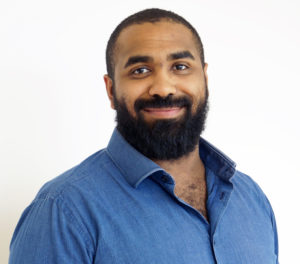Autumn term in Milan
This introductory course is aimed at providing students with basic key skills, analytical tools and perspectives that will help them to assess the attractiveness of an entrepreneurial idea and anticipate the problems likely to be encountered when transforming the idea into a business. In doing so the course integrates several disciplines (i.e., entrepreneurship, strategy, economics, finance, marketing).
The Participants to the Design-Driven Innovation course of the MIP AMIE program would be trained to act as managers with a specific sensibility and capability to manage design driven innovation. More specifically they will become managers who:
- Define strategies where design is a source of competitive advantage
- Are capable to understand technological trends, explicit and latent user needs, and socio-cultural trends, together with a capability to interpret competitive dynamics in industries
- Generate and develop visions that are based on a deep understanding of the future dynamics of: competition, society, and technology
- Define technology strategies that sustain design driven innovation with a strong and inimitable technological competence
- Create organizational environments that foster creativity and learning
This introductory course is aimed at providing students with the basic tools of the strategic marketing approach and especially how to apply them in an entrepreneurial setting. The course focuses especially on the key marketing considerations in an entrepreneurial setting and is aimed to create the understanding, that marketing is not just a functional chapter to be covered in the business plan but rather an approach to market-oriented leadership. Therefore, the course takes a generalist view and bridges the concepts of corporate strategy, you have already covered in other courses, and marketing considerations aimed at creating sustainable competitive advantage.
The course aims at providing methodologies and models in order to identify the most adequate sources of finance for new entrepreneurial initiatives, and to manage efficiently the fundraising process, from the analysis of the business value and financial needs up to the funding contract. The course focuses particularly on new start-up ventures.
This introductory course provides key effective management tools and theories : through operational tools, allow participants to gain a greater awareness on skills related to communication, motivation and delegation.
This seminar aims to help participants in gaining the skills necessary to:
- interpret own and others behaviors in the workplace
- design and implement concrete instruments for driving performance and create commitment to innovation;
- identify concrete actions and management solutions to achieve innovation and organizational goals .
Goals
- Gain knowledge and techniques related to the management of people both individually and as a group
- Understand how to use leadership and teams to drive innovation
- Knowing how to manage motivation to support development of new scenario
- Identify concrete actions and management solutions for the achievement of innovation goals
This course is designed to offer participants concepts and instruments necessary to gain a better understanding of social innovation processes, broadly interpreted to include different entrepreneurial responses to the problem of jointly and entrepreneurially pursuing social, economic and financial returns. This involves the reinterpretation of the whole set of managerial notions. Upon successful completion of the course, participants will be able to interpret and face any managerial challenge related to social entrepreneurship, in both start-ups and established companies as well as to discuss related policy issues.
The course stimulates the students to build a forward-looking perspective and gain vision concerning the market opportunities and the market challenges that new technologies will pose in the future. It provides the students with a mix of models, concepts and tools useful to understand the complex interaction between technological development and the formation of new consumers’ needs and related markets.
By the end of the course the students should be able to discuss the opportunities and challenges that a new technology will likely generate for existing and perspective businesses. They also learn to prepare a vision outlook concerning a new technology and related market.
This year course is focused on Artificial Intelligence (AI), such that, by the end of the course, they should become acquainted with the likely development of a broad number of AI applications.
The course aims to develop project management skills through greater theoretical understanding and practical application of the project management principles. It reviews different project management methods and tools, covers the essential skills required to be an excellent project manager and highlights the key elements that influence project management outcomes. The course includes the definition and planning of a project, using state-of-the art project management software.
Spring term in Brussels
In this course, we will examine how data analysis technologies can be used to improve decision-making. We will study the fundamental principles and techniques of data science, and we will examine real-world examples and cases to place data science techniques in context, to develop data-analytic thinking, and to illustrate that proper application is as much an art as it is a science.
Data Science for Business is a course intended for those who need to understand data science and those who want to develop their skill at data-analytic thinking. This course is not a about algorithms. Instead it presents a set of fundamental principles for extracting useful knowledge from data. These fundamental principles are the foundation for many algorithms and techniques for data science, but also underlie the processes and methods for approaching business problems data-analytically, evaluating particular data science solutions, and evaluating general data science plans.
The class meetings will be a combination of lectures on the fundamental material, discussions of business applications of the ideas and techniques, guest lectures from practitioners, case discussions, and student exercises.
Field Projects
Stimulate and develop entrepreneurial skills of students. Create attention and sensitivity among students about the possibility of founding a new company to exploit a new technology. Provide an overview on the processes and issues related to the launch of high-tech startups. Provide the basics needed to start a new high-tech startup, design the business model and find the funding opportunities for its implementation.
During the lab, students are supposed to work in groups (3-5 members) to develop the value propositions of two business ideas. In so doing, students will take advantage of the advice of two junior tutors and one senior tutor. Specifically, groups will be allowed to exploit the junior tutors available during lab lectures and to use up to 2 additional hours of junior tutors’ time. Groups will be allowed to use up to 2 hours of the senior tutor’s time as well. Meetings with junior and senior tutors may be arranged either face-to-face or through Skype. Moreover, students are supposed to ask for and exploit the advice of the incubator managers, investors and policy makers who will give keynote speeches during the course. The value propositions of the first business ideas will be developed in groups formed by the course instructor and will be evaluated by a commission composed of the course instructor, the junior tutors and practitioners in the entrepreneurship field (e.g., investors, entrepreneurs). After the evaluation of the value proposition of the first idea, students will start working on the value proposition of the second idea. To develop it students will be allowed to choose their group mates. Despite students are expected (and warmly invited) to work on two different business ideas during the lab, if some students strongly believe that their first business idea is particularly valuable, they are allowed to ask the commission that evaluated it for the permission to further develop it during the lab. Also the value propositions of the second ideas will be evaluated by a commission composed of the course instructor, the junior tutors and practitioners.
Consulting Skills: These sessions elaborate on the project management course and prepares the participants for the ‘Innovation in action’ field project. They aims to provide the participants with a set of tools and best practices of high-profile management consulting, such as dealing with the customer, scoping, preparing a proposal, selecting the right methodologies, monitoring the project, preparing presentations and reports, provide feedback and formulating actionable recommendations. They include multiple workshops and coaching sessions and are aided by practicing consultants.
Field Project: The field project is to be undertaken by groups of 3-4 participants and consists in a part-time consulting assignment to be accomplished at an established small or medium entreprise in Brussels. (The assignments are screened and selected by the instructors, but students are welcome to propose projects). Each assignment includes at least an internal and external analysis of the firm, market/industry, the definition and selection of a scenario, the development of a roadmap, the selection of Key Performance Indicators (KPIs) and the accomplishment of an accurate risk analysis. Each team is coached by an academic Faculty member, who will serve as an advisor to help participants in selecting and using tools and techniques among those learned during the program.
Practical information
Enrolments for September 2019 are open!
Starting date: September 2019
Location: Milan (fall term) & Brussels (spring term)
Format: Full time (60 ECTS)
- Language: English
Tuition: 16,000€
Length: 12 months
Application deadline:
> Non-EU students: 31 May 2019
> EU students: 30 June 2019
Upcoming events
“The 3 key words that definitely sum up my experience are: passion, network and quality, in terms of the classes that we have, the people that we meet and career opportunities that we have.”
“We are a group of 34 people with 16 nationalities which creates a very interesting learning and challenging working environment, we gain a lot of different insights. It’s definitely an eye-opener and it makes you think even further.”
“The uniqueness of the programme lies in the genuine cross-cultural experience it offers. We learn how to think and act like professionals in an accurate sample of the working world today.”
“Professionally wise the master actually brought me a job ! During the master, we had to work as consultants for a company of our choice; so I ended up at that company and I actually never left.”
“The course is meant to make you open to new opportunities and radically change your mindset by experiencing a variety of subjects in very dynamic and interactive class sessions. I can now make my first steps in the entrepreneurial world with a proper toolbox thanks to this program.”
“The diverse blend of cultures has increased my understanding of other people choices and lifestyle, I believe it helped me to become more flexible and compliant to changes.”
“Being taught by extremely knowledgeable professors, assigned to different projects, case studies and workshops, interacting with 30 classmates coming from 15 countries, studying in two countries, helped me to understand different cultures, enhanced my team-building skills and most importantly, inspired me to think creatively.”
Keep me posted








